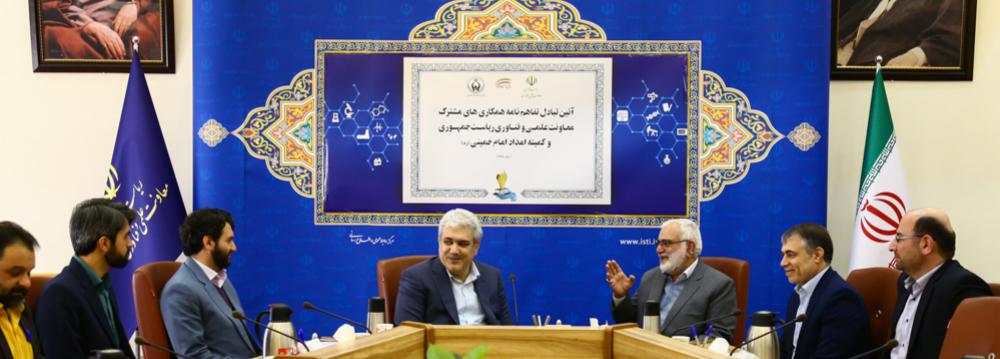Iran’s Vice Presidential Office for Science and Technology and Imam Khomeini Relief Committee have launched an initiative to identify tech aficionados from less-well-off economic background.
The two state institutions will offer training to talents and help them develop tech-based business models, Azad News Agency reported.
During a Monday event held in Tehran, Sorena Sattari, the vice president for science and technology, met Morteza Bakhtiari, the head of IKRC, to discuss the huge untapped entrepreneurship potentials of individuals financially supported by IKRC.
"There are young, talented and hardworking people who are able to establish a business and flourish it with their fighting spirit," Sattari said.
He added that with the help of IKRC, a monitoring algorithm will be devised to detect the promising talents.
"The identified individuals will have the chance of presenting and developing their innovative ideas, in addition to receiving consultation to develop them into structured business plans," he said.
In line with the government's policy of empowering the country’s technology ecosystem, the vice presidential office is planning to provide financial and technical assistance to IKRC's innovative individuals to help them launch their plans.
Sattari said the vice presidential office is ready to allocate the required budget for creating a joint system for management, investment, services and financial aid, as well as issuing legal permits for the fledgling tech teams.
Pointing to the fact that these bright minds should not be stopped by financial limitations and lack of working space or motivation, Sattari said, "A scrutiny of IKRC's documents of people getting charitable support and the creation of a separate database for selected entrepreneurs could be the first step to achieve the goal."
Multi-Dimensional Support
The government is optimistic that giving financial, technical and advisory assistance to fledgling tech teams could help them expand their businesses and promote the country’s transition from a conventional to digital economy.
Iran National Innovation Fund, affiliated to the Vice Presidential Office for Science and Technology, and other tech authorities have played a major role in extending vital resources.
The administration of President Hassan Rouhani established the fund with an initial investment of 30 trillion rials ($189.8 million). As per the law, the government is required to allocate 0.5% of its annual budget to INIF.
The fund’s officials say INIF will continue to give financial support to fledgling tech firms.
For years, the government has pursued the establishment of efficient workplaces with the help of professional mentors and investors.
Over the past few years, numerous tech parks have been established throughout the country.
The Iranian capital city, Tehran, pioneers the trend with two innovation factories. Other cities, including Mashhad, Isfahan, Karaj, Tabriz and Shiraz, also launched similar projects later to facilitate the growth of tech firms.
The most recent attainment in this regard is the upcoming partial inauguration of a tech center, referred to as Startup Factory, in the southern province of Fars.
Co-organized by the vice presidential office, Information and Communication Technologies Ministry and Fars Governorate, the factory has been established in an abandoned one-hectare, two-story building once used by the Iranian Telecommunications Manufacturing Company.
Such multi-dimensional help is expected to help the tech teams expand their business over the borders and find international customers. This will drive the domestic economy into a technological structure and curb the country's reliance on oil-based revenues, considering the economic hardships imposed on Iran by US sanctions.
The efforts have so far paid off, according to the numerical data.
Export Value
Since the President Hassan Rouhani took office during his first term in 2013, numerous startups and tech firms have been able to flourish in both domestic and foreign markets.
Sattari earlier told the media that Iranian knowledge-based companies and tech firms have earned 1 quadrillion rials ($6.32 billion) from the export of technological products in the first half of the current Iranian year (started March 2019).
He added that the income has been on an upward trajectory over the past several years, increasing from 600 trillion rials ($3.7 billion) in the year ending March 2018 to 900 trillion rials ($5.6 billion) last year.
"Given the domestic potentials and the enthusiasm of tech teams, exports will soon reach 5 quadrillion rials [$31.64 billion] and it is not a farfetched goal," he said.
Sattari noted that the figures show the solution to economic hardships facing Iran today can be found inside and not outside the country.


